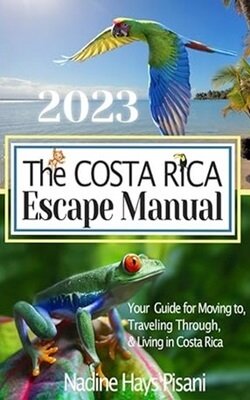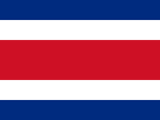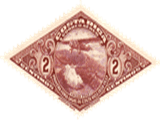- Home
- Moving Guide
- Cars
Search this site
Costa Rica Cars
All about owning a car in the land of Pura Vida
Residency Cost of Living Healthcare Real Estate Bringing Pets Shipping Mail Money Cars Drivers License Moving Resources
Four Wheel Drive is a Must
The most important thing about Costa Rica cars, is that whatever you buy, it must be a 4WD. Even if you don't plan on driving off-road, unexpected road closures, flooding, mud slides can all happen at any time and send you on a different path, and many times, this will be on a dirt road. In Costa Rica, always expect the unexpected!
Costa Rica Cars - How Much Does it Cost ?
On average, new cars and trucks are about 25-30% more expensive than in the United States. This is due mostly to high import taxes imposed by the Costa Rican government. Used cars are therefore much more popular but still more expensive than their United States counterparts.
The most common vehicles are Toyota, Mitsubishi, Suzuki, Hyundai and Kia, in that order. I have seen a few Ford and Chevy pickup trucks, but not many, and some Honda, Isuzu, BMW, Audi, Porche, Mercedes and Subaru vehicles and SUVs. If you bring, or purchase some of the higher end vehicles such as Audi, BMW, Porche and Mercedes, most likely the dealerships for service and maintenance will be limited to the San Jose area. I have a friend who has a BMV SUV that he brought from the United States and he has to take it to San Jose for service. If you can't drive it there, it must be towed and this could be an expensive towing bill depending where you are living. Bottom line is to check for dealerships around where you are thinking about moving to.
By far the easiest to get parts for and maintain is Toyota, but because of this, the price will be at a premium, even for a used Toyota. For example, a new Toyota RAV 4, 4WD is about $40,000 USD in Costa Rica as compared to around $30K in the US. However, a negotiated price of $40,000 USD turns into about $48,000 USD, out the door, by the time you add in the 13% Value Added Tax (VAT) and the pre-payed Marchamo. This price is if you pay cash!
A 4-5 year old used RAV4 in Costa Rica with moderate mileage (70-80,000 miles in very good condition is a little bit over $20K USD. A 5 year old Toyota Hilux 4WD king cab pickup truck with 65,000 miles in excellent condition is about $45,000. Now you can see why used cars are so valued.
While you may think that the Jeep Wrangler would be the perfect car for Costa Rica, people that I know are constantly complaining about the inability to find parts. You can eventually get them, but they will have to be imported and this will cost time and money.
Maintaining a car in Costa Rica is expensive. There are yearly registration fees, periodic road worthy inspections and gas is expensive. The only thing not expensive is labor. Depending on where you live, roads in poor condition will result in much more maintenance, especially brakes and suspension parts.
In our first year living in Costa Rica, other than oil changes and front brakes, there have not been any additional repairs required. I changed the front brake pads myself but they still cost $178 USD from the Toyota dealer in Liberia.
Gas has ranged from $3.60 USD to little over $5.00 USD per gallon since we arrived in April of 2019. Diesel is much less expensive than gas in Costa Rica.
The price of gas is controlled by the Costa Rican Government and will be the same at all gas stations in the country,
Our yearly registration fee, called Marchamo in Costa Rica, for our 2014 Toyota RAV4 with a book value of about $17,000 in 2021 was $587 and $455 for 2022. The Marchamo is due by December 31st and can be be paid anytime from November 15th to December 31st. If you pay late, expect a 10% penalty for each month.
If you currently own a car in Costa Rica, you can check how much the Marchamo will be here. Just enter your license plate number.
Insurance cost, at least for us, is less than living in Southern California. A good policy for our 2014 RAV4 was $672 for year.
Then there is the vehicle technical inspection, Riteve (see below for details). The appointment cost is about $25. If they find anything wrong, you must get it fixed and return for a follow up inspection. There is also a fee for the return visit.
Importing a Vehicle
You can import your vehicle but it will be expensive. There is a sliding import tax scale that ranges from between about 50% and 80% of the value depending on the age of the car. The older the vehicle, the higher the tax. The assessed value will also be higher than in the United States and is not based on the Kelly blue book value, but instead is based on what the Costa Rican government thinks it is worth. Vehicles that are too old, won't be accepted at all.
If you decide to bring your vehicle, check the model to make sure parts are available. If not, parts will have to be imported. This will be expensive and take a lot of time. Just because you bring a Toyota from the US or Canada doesn't mean that it is exactly the same as the counterpart model in Costa Rica. There can still be differences between a Toyota Hilux in Costa Rica and a Toyota Tacoma in the United States, enough to be a headache.
Consider the cost of putting it in a shipping container. Containers are available in 20 and 40 foot lengths. If bringing a car pushes you to a larger container, or even worse, another container, it probably isn't worth it.
Vehicles must also be certified as safe for overseas travel, yet another headache and expense. This includes draining any flammable fluids.
Once it arrives in Costa Rica, the vehicle must be inspected and pass Riteve, the national Costa Rica vehicle inspection organization, as outlined in the next section. In addition, you must pay for the Marchamo registration fee. The entire process from when the car arrives in Costa Rica to when you are able to pick it up is about 3 months. This could equate to another three months of a rental car if you are using one and therefore is just another added cost.
Riteve
The Riteve inspection is performed every two years for cars under five years old and every year for cars over 5 years. Upon passing the inspection, you will be given a sticker to place on the passenger side of the windshield.
The due date for the Riteve is based on when the vehicle was originally purchased. For example, if your Riteve sticker says "June", you have until June 30th to pass the inspection. If you fail the inspection and don't pass the follow up inspection before the last day of the month on the sticker, then you legally cannot drive that car.
The Riteve inspection consists of a series of visual and automated tests to ensure that braking, emissions and suspension, wipers, lights, windshield, tires, seat belts and safety equipment systems are all working properly and within safety guidelines.
The tests are performed in a large garage that you drive through proceeding from one test to another. Kind of like an automated car wash without the water and soap. Except for the seat belt test, you do not have to get out of the car.
The following will be inspected/tested
- Tire wear (must be within allowable limits)
- Function of all lights and turn signals (including license plate light and backup lights). Head lights both standard and high beams are tested with a machine that measures light intensity. If the plastic on the headlights are foggy or dirty, you probably won't pass the test.
- Horn.
- Air Conditioner to ensure that it cools.
- Wipers, including to ensure that there is adequate fluid in the reservoir
- Engine oil, coolant and brake fluid levels
- Brakes - This is an automated test on a machine that spins the tires and then measure the braking force and how long it takes to stop the wheels. Front and rear brakes plus the parking brake are tested on the machine.
- Seat Belts - You will need to show the inspector that all seatbelts can be plugged into their seat lock and released.
- Suspension - This is an automated test that applies different vibration frequencies and listens for things that rattle.
- Windshields to ensure they are free from cracks and damage
- Safety Equipment (fire extinguisher, jumper cables, reflective road triangles)
- Emissions check.
Buying a Used Vehicle
For us, the timing is good. Our 1999 Honda Passport with 242,000 miles and 2005 Honda Accord with 208,000 miles were too old to bring to Costa Rica and parts would have been a problem, plus they were not four wheel drive. Parts for the Passport were sometimes a problem, even in the United States. We ended up purchasing a used 2014 Toyota RAV4 4WD with about 78,000 miles on it for $23,000 USD. This price included a finders and mechanical review fee from the company that we used, Car Center Coco. Since our purchase, Car Center Coco has been sold and no longer provides car purchasing services.
You will need a reputable lawyer to buy a used car. They will research the title and make sure that it is clean and that there are no liens or tickets against the vehicle. They will also file paperwork with the Costa Rican National Registry and obtain the new title. The average costs for this service is about $400.
Always be Aware of Scams - An Important Example
As with anywhere in the world, watch for scams when buying a used car, especially odometer resets. Recently I accompanied a friend to look at a 2007 Toyota RAV 4 in the Guanacaste area of Cost Rica. The Odometer showed about 58,000 kilometers or about 36,000 miles. This seemed really low for a car 14 years old. We were told that the person's father purchased the car new and didn't drive much. Then we noticed that the speedometer's primary gauge was in miles per hour but the odometer was in kilometers......seemed strange. So my friend did a CarFax check and found that the car was originally from Florida, and when sold, had over 200,000 miles on it. This means that the car really had 236,000 miles on it. Lots of cars are imported by people who move here from the United States and then sell it because they either returned home or bought a different vehicle.
CarFax won't have any information on vehicles that originated in Costa Rica. However, it is worth the money to perform a CarFax check anyway prior to making a final decision and also run away from the deal if something doesn't feel right. Fortunately my friend did.
Summary
In my opinion, sell your vehicle before you move to Costa Rica and buy something down here, new or used. There is a lot of work and expense to bring your own car and I don't think it is worth it.












